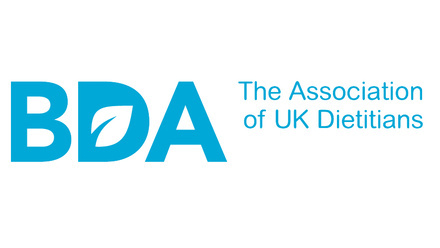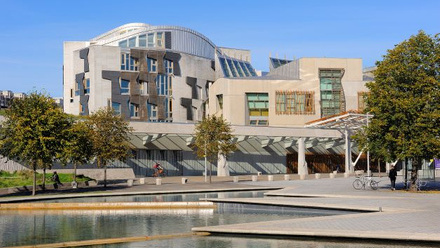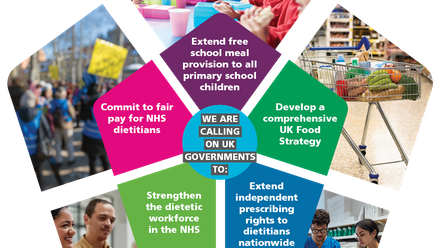BDA England Policy and Campaigns Officer Lindsey Marston analyses the Autumn Budget Statement.
History was made when Britain's first female Chancellor stood and gave her Autumn Budget Statement this afternoon, stating that there should be no ceiling on young women's ambition - a fact, that regardless of all our thoughts in the weeks to come following this statement, is an impressive feat.
Invest. Invest. Invest. You'd be forgiven for thinking it is 1997. The first Labour budget in 14 years was delivered this afternoon and it was big. As the BBC puts it "big tax rises, big borrowing, big spending".
We have come so far as a nation since the time of the instruction of the very first Chancellor in 1559, yet for a lot of people in this country accessing our public services, it would seem we have been going backwards; indeed, the Chancellor stated we have "broken public services, that every person feels".
Singing to the same hymn that they have since gaining office in July, the choices they've made have not been easy, however, the Chancellor ensured that they are responsible. If, however, they breach the promises they made in the election campaign, this is another matter.
There is, of course, a substantial amount of economic and fiscal implication in today's budget for the working person, businesses, pensioners, and more.
Here at the BDA, we will focus on that which directly affects you, our members, this comes down to health care and the NHS, a pillar for which investment landed.
The Chancellor confirmed an increase in taxes by £40 billion to - as she stated - rebuild public services. Outside of the general statements and funding allocations into healthcare spending and reform there were specific items which affect our campaigns, our members and our service users. These include:
- £6.6 billion further funding to the devolved nations, which can in part be spent on health and social care
- £11.8 billion for compensation on the infected blood scandal
- £30 million to the rollout of breakfast clubs in thousands of primary schools
- A promise to keep and raise duties on tobacco products
- Soft Drinks Industry Levy (SDIL) will be raised, creating £1 billion by the end of the forecast
- Strengthened worker’s rights which extend to protection against unfair dismissal, bullying, maternity and paternity leave, and an increase to carer’s leave
As we know earlier this year the independent Lord Darzi report provided damning conclusions on the state of the NHS, stating the "most austere decade since the NHS was founded", moving in the wrong direction in multiple areas, ever growing long waiting lists for services and procedures to name a few.
Since Health Secretary, Wes Streeting has taken office there have been signs that they are beginning to repair this damage. It was strongly stated that they cannot spend without reform, Spring 2025 will see the publication of the NHS 10-year plan, which is currently out for consultation.
This afternoon the Chancellor has "put her downpayment on this plan" increasing day-to-day spending in the NHS to £22.6billion, and an extra £1.57billion in capital investment.
This record injection of funding has promised to bring down waiting lists, dishing out 40,000 additional out-of-hours appointments a week.
£1 billion of health capital will be invested into repairs surrounding the RAAC crisis (reinforced autoclaved aerated concrete) on public use buildings.
£1.5 billion to new beds, as well as new capacity for diagnostic and surgical centres, ending this item telling us to keep an eye out for the Health Secretary's New Hospitals Programme, to be published soon.
It is clear to see that there is a large amount of spending increase in the next two years for the NHS. However, this then plateaus for the final three years of this government, which does pose a risk that there will be a need to increase taxes or increase borrowing, again.
Also, there are questions that will arise over the next week or so regarding the items missed out of the statement. Namely, the fact that the 10-year plan for the NHS and its reform has not yet been published, so how can we know what spending is needed and where?
One thing we know for definite is a three-pronged strategy to reforming the NHS is clearly here to stay.
A move from hospitals to community, from analogue to digital, and from sickness to prevention. We applaud the increase in funding and investment in technology and innovation in healthcare.
Dietitians play a pivotal part in treating, managing and preventing diet-related conditions across the life course and it's important our work is valued, and more investment is gained. Our concerns around this budget will need to be answered, at present these include, but are not limited to:
- Funding allocation: we need to see where this day-to-day spending will be spent, either in primary care, community, public health etc.
- Workforce support: we need clear answers on the funding dedicated to recruiting and retaining our dietetic workforce.
- Long-term planning: we need clear strategies on long-term planning and sustainable funding to ensure the resilience of dietitians and the AHP workforce as a whole.
- Our food system: we need a clear national strategy that creates a fairer food system for all, as we know this directly and indirectly affects our service users immensely.
Overall, this Autumn Budget presents a promising opportunity to enhance healthcare services in the UK. We appreciate the government’s efforts and look forward to working together to build a healthier future for all, however, the work begins now.
We encourage you, our members to collaborate with us as engage with the government, and other key stakeholders to advocate for our campaigns and matters that are close and important to your practice, education and profession, which is at the heart of what we do here at the BDA.
Get in touch with us: [email protected]






